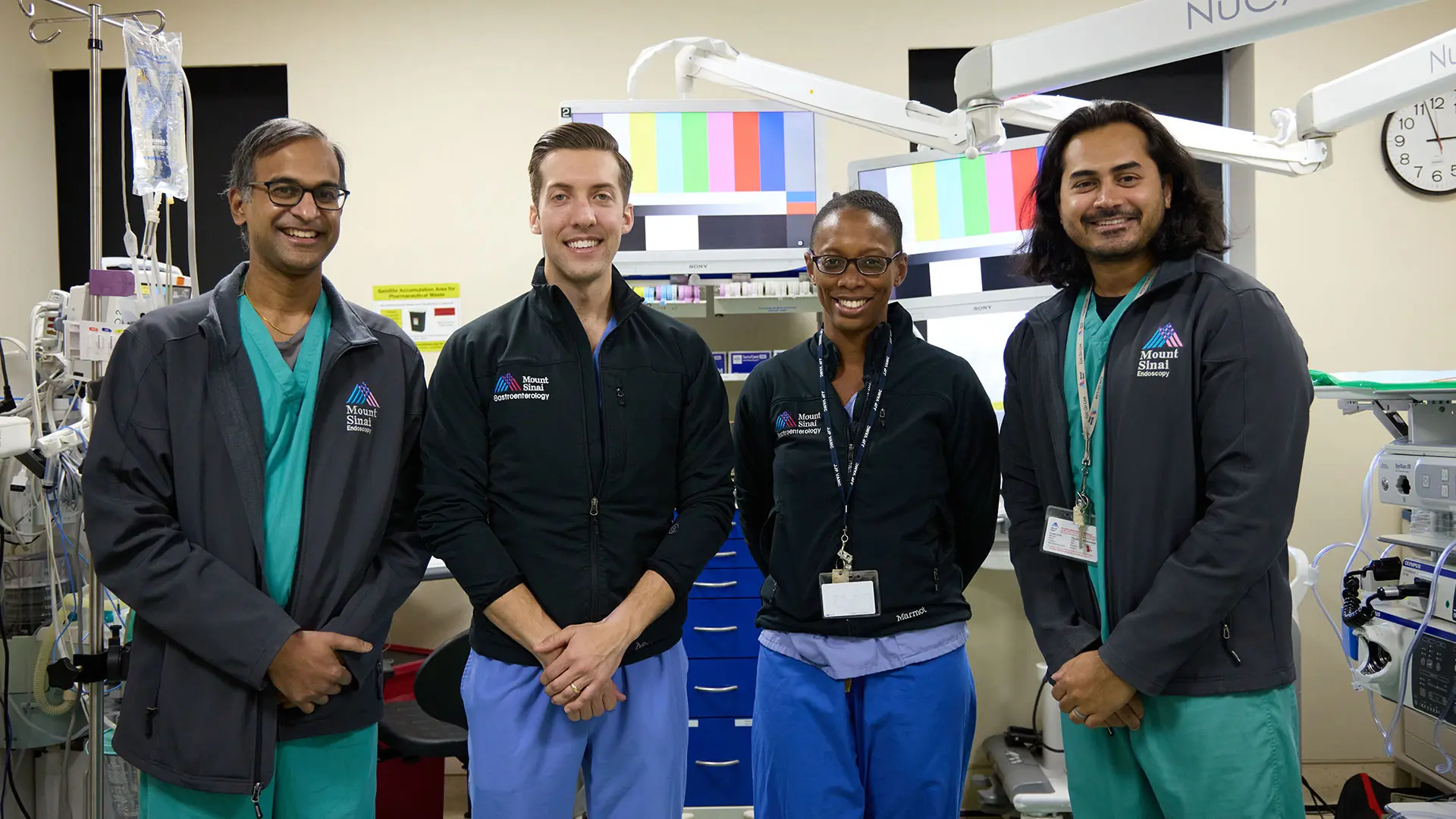Mount Sinai’s interventional endoscopy team continues to lead the field in innovation with the recent introduction of two novel procedures that are dramatically advancing treatment for patients with achalasia, necrotizing pancreatitis, and fibrotic colon polyps.
The first of those interventional procedures is single-session peroral endoscopic myotomy (POEM) and transoral incisionless fundoplication (TIF). Over the past decade, POEM has been adopted worldwide as a minimally invasive endoscopic treatment for achalasia (a rare disorder that makes it difficult for food and liquid to pass from the esophagus to the stomach), with results comparable to those of laparoscopic Heller myotomy. The downside is that long-term gastroesophageal reflux disease (GERD) and esophagitis occur in up to 60 percent of all POEM procedures, creating the need for endoscopic solutions for GERD that can be performed at the same time as POEM.
In response, Mount Sinai developed a procedure that allows POEM to be done concurrently with TIF, the endoscopic gold standard for GERD. “We became one of the first teams in the world to combine both procedures into a single session in humans,” says Nikhil A. Kumta, MD, MS, Associate Professor of Medicine (Gastroenterology) at the Icahn School of Medicine at Mount Sinai, and newly named Director of Interventional Endoscopy for The Mount Sinai Hospital and the Mount Sinai Health System. That collaboration with other institutions was described in a paper in Endoscopy International Open.
The study, in which the dual procedure was performed on five patients, found no evidence of GERD or esophagitis after any of the procedures, with the majority able to discontinue their anti-reflux medications. Nor were there any cases of intraprocedural adverse events, such as bleeding or mucosal injury.
“We showed that single-session POEM-TIF is an excellent, minimally invasive alternative to surgery for patients with achalasia and other esophageal dysmotility disorders,” notes Dr. Kumta. “Being able to safely and effectively incorporate myotomy and an anti-reflux component into the same procedure is truly a major innovation for the field and for our patients. More studies are needed, however, to evaluate the long-term safety and efficacy of POEM-TIF.”
Single-session POEM-TIF
Patients stand to gain from another innovation introduced over the past year in the endoscopy suite: a catheter-based suction device to treat necrotizing pancreatitis. Known as EndoRotor, the endoscopic tool applies mechanical suction to remove necrotic tissue around the pancreas that, if it becomes infected, can cause life-threatening complications. Previously, no dedicated tool existed to perform these necrosectomies, and patients would require multiple endoscopic sessions for debridement. “For select patients, the EndoRotor enables us to clean out and eradicate necrotic debris much faster than previously, and therefore decrease the length of patient stays in the hospital,” says Dr. Kumta. The device has also been used successfully to remove precancerous fibrotic colon polyps that are resistant to eradication through conventional procedures.
Advanced endoscopy procedures like these are performed by a team of highly skilled specialists at The Mount Sinai Hospital committed to excellence in the delivery of patient care, research, and education for diseases of the GI tract. That team includes Satish Nagula, MD, Associate Professor of Medicine (Gastroenterology), and Nicholas Hoerter, MD, Assistant Professor of Medicine (Gastroenterology), recently added to help handle a growing volume of cases and referrals. Dr. Hoerter’s areas of specialization include endoscopic retrograde pancreatography, endoscopic ultrasound, and single- and double-balloon enteroscopy to treat GI disorders of the small intestine.
Featured

From left: Satish Nagula, MD; Nicholas Hoerter, MD; advanced endoscopy fellow Yakira David, MBBS; Nikhil Kumta, MD